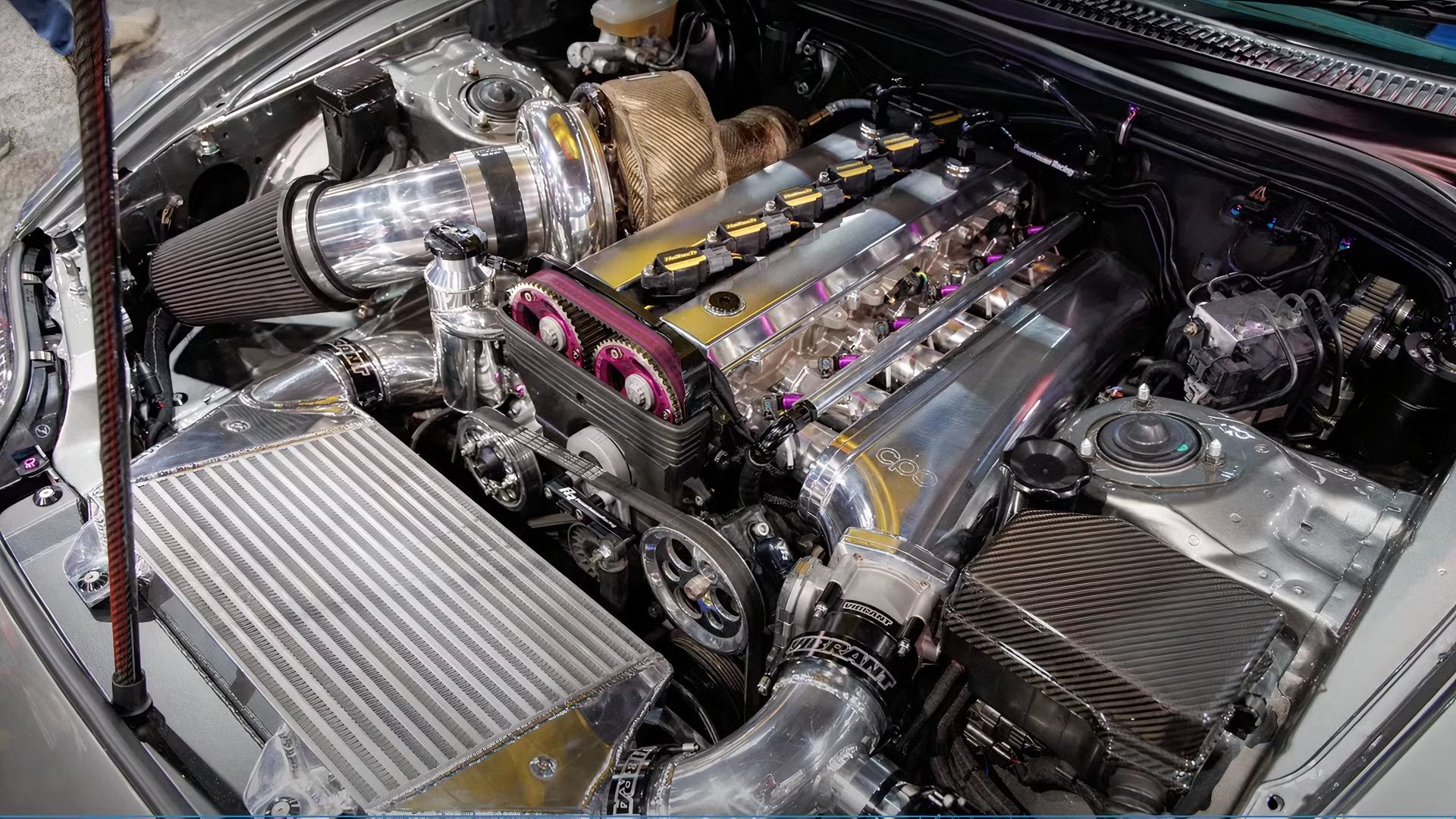Table of Contents
⚠️ Disclaimer:
This article provides general insights and opinions. Always consult a certified mechanic for vehicle-specific advice.
Why Japanese Engines Dominate the Market
Japanese engines are synonymous with reliability, innovation, and efficiency. From Toyota’s bulletproof designs to Honda’s high-revving powerhouses, this guide breaks down the strengths, weaknesses, and standout models of Japan’s top automakers.
1. Acura: Precision Engineering Meets Honda DNA
Overview: Acura, Honda’s luxury arm, shares engines with Honda but adds premium tuning.
- Pros:
- i-DTEC Diesel (2009+): Low emissions, quiet operation, and excellent fuel efficiency.
- North American Production: Most models built locally, ensuring parts availability.
- Cons:
- Limited unique engine designs compared to European rivals.
- Notable Engines:
- J-Series V6: Smooth power delivery in RL and MDX models.
2. Nissan: Durability Meets Innovation
Overview: Nissan engines prioritize longevity with robust engineering.
- Pros:
- Timing Chains: Replaces belts for lower maintenance (e.g., QR25DE).
- VQ Series V6: Award-winning engines in Maxima/350Z (1995–2020).
- Cons:
- Older turbodiesels (e.g., TD27) can develop injector issues.
- Expert Tip: Avoid skipping oil changes on VQ engines to prevent timing chain wear.
3. Toyota: The Gold Standard of Reliability
Overview: Toyota’s simplicity-first approach ensures decades of service.
- Pros:
- JZ & 1G Engines: Turbo-friendly inline-6s (Supra, Chaser).
- VVTi Technology: Balances power and efficiency (e.g., 2JZ-GTE).
- Cons:
- VZ Series V6: Prone to oil sludge if neglected.
- Best for: Daily drivers and tuners seeking indestructible blocks.
4. Mitsubishi: High Risk, High Reward?
Overview: Mitsubishi’s ambitious designs sometimes sacrifice reliability.
- Pros:
- 4G63 Turbo: Legendary in Evo models for tunability.
- Cons:
- 4D56 Diesel: Head cracks in cold climates.
- Balancing Shaft Failures: Common in older Galant engines.
- Avoid: Pajero’s 4M40 diesel (electrical gremlins).
5. Honda: Engineering Excellence with a Catch
Overview: Honda engines thrive on precision but demand care.
- Pros:
- VTEC Systems: High-RPM power (e.g., K20A in Civic Type R).
- F23A/C35A: Low-stress engines for hassle-free driving.
- Cons:
- High RPM Wear: Integra’s B18C1 may need rebuilds post-150k miles.
- Tip: Use premium oil to protect VTEC components.
6. Mazda: Underrated but Capable
Overview: Mazda focuses on refinement over experimentation.
- Pros:
- SkyActiv Tech: Efficient and responsive (2012+ models).
- Reliable 4-Cylinders: MZR series in Mazda3/CX-5.
- Cons:
- Lacks Toyota’s bulletproof reputation.
- Hidden Gem: 2.5L Turbo in Mazda6 delivers 250 hp.
7. Subaru: Love It or Hate It
Overview: Boxer engines offer unique benefits and challenges.
- Pros:
- EJ Series: Turbocharged EJ255/257 in WRX/STI.
- Durability: EA82 engines (pre-1989) are tanks.
- Cons:
- Head Gasket Issues: Plagues EJ25 (2000–2010).
- Advice: Monitor coolant levels in older Foresters.
8. Suzuki: Small but Mighty
Overview: Suzuki excels in compact, efficient engines.
- Pros:
- G16A: Dead-simple 1.6L in Vitara/Escudo.
- Keen Pricing: Affordable parts and repairs.
- Cons:
- J20A/H25A V6: Less reliable than 4-cylinders.
9. Isuzu: Diesel Specialists
Overview: Isuzu now focuses on trucks/SUVs with robust diesels.
- Pros:
- 4JJ1-TC: Reliable 3.0L turbo-diesel in D-Max.
- Cons:
- 4JX1 Diesel: Complex electronics in Trooper.
- Best for: Commercial use or off-road enthusiasts.
Japanese Engine Comparison Table
| Brand | Most Reliable Engine | Avoid | Best For |
|---|---|---|---|
| Toyota | 2JZ-GTE | VZ Series V6 | Daily Drivers |
| Honda | K20A | High-mileage B-Series | Enthusiasts |
| Nissan | VQ35DE | RD28 Turbodiesel | Performance |
| Mitsubishi | 4G63T | 4D56/4M40 | Tuners |
| Subaru | EJ207 (JDM) | EJ25 (non-turbo) | AWD Lovers |
FAQ: Your Japanese Engine Questions Answered
Q: Which Japanese brand has the most reliable diesel engines?
A: Nissan’s TD27 and Isuzu’s 4JJ1 are top picks for durability.
Q: Are Honda VTEC engines expensive to maintain?
A: Yes—requires synthetic oil and timely valve adjustments.
Q: Why do Subarus burn oil?
A: Boxer engines’ horizontal design can lead to seal wear over time.
Conclusion
Japanese engines offer a spectrum of choices: Toyota’s unkillable workhorses, Honda’s high-strung performers, and Nissan’s balanced innovators. For reliability, stick with Toyota or Honda. For tunability, Mitsubishi’s 4G63 or Subaru’s EJ207 shine. Share this guide to help others navigate the world of Japanese engineering!
Expand Your Automotive Knowledge 📝
Explore 500+ Free Expert-Curated Guides
🚗 Learn New Skills
From basic maintenance to advanced repairs — clear, actionable tutorials for every skill level.
🌍 Access Anywhere
Mobile-friendly guides with HD visuals. No downloads required.
- Guides & Tutorials
- Car Maintenance 101
- Diagnostics & Troubleshooting
- Seasonal Maintenance
- Budget-Friendly Repairs
- Electrical Systems Guide
- Car Safety & Reliability
- Tools & Product Reviews
- Routine Maintenance
- Car Modifications & Upgrades
- Buying/Selling Guides
- Eco-Friendly Car Care
- Advanced Repairs
- Car Laws & Compliance
- Emergency Repairs
- Future Car Tech


